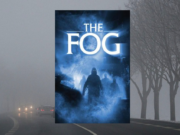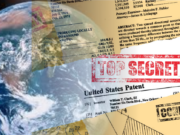
by Mary W Maxwell
We are the Dead / Short days ago We lived, felt dawn, saw sunset glow /
Loved and were loved, and now we lie/ In Flanders fields.
If ye break faith with us who die / We shall not sleep, though poppies grow
In Flanders fields.
(John McCrae, In Flanders Fields)
Today is Veteran’s Day here in the US. My local restaurant was packed with families taking their favorite veteran to lunch. I think it is time we started to do the right thing for the veterans of the Vietnam war, and for ourselves.
John Judge, who seems to me honest and dedicated, reports that his mother was in charge of troop projections for many years. She had to estimate 5 years in advance how many men should be called up via Selective Service. In 1963, she saw that we were withdrawing from Vietnam. But then, on the Monday after JFK died, — November 25, 1963, she saw the numbers changing and went to the Joint Chiefs of Staff to say it could not be correct.
She was told “The war will last 10 years and 57,000 American soldiers will die” – a correct estimate of length of the war and number of casualties.
There really is no need for us to be baffled by this. We are big boys and girls here at Gumshoe and can understand what this means.
We owe it to soldiers to do something about this, and by the same token they owe it to us to think about it and talk about it.
Start at the 5-minute mark of John Judge’s video if you can tolerate it.
I’m not sure what year it was filmed. Much earlier than the 2014 upload date.
Update:
Letter to Kissenger
As I just happened across this 700-word letter from Arthur Schlesinger to Henry Kissinger, I shall append it.
May 7, 1970
New York, New York
Dear Henry:
I have forborne from writing because of my confidence in your own intelligence and purpose and because of my full awareness of the difficulty of judging complex internal situations from the outside. But you have said to me more than once that, if the time should come when your own situation begins to seem indefensible, you would appreciate it if your friends were to let you know. In all candor I think that time has come. I honestly cannot imagine what circumstances could justify the Cambodian adventure.
As you well know, this scheme has been kicking around Washington for years. Even President Johnson had the sense to reject it when the Joint Chiefs hawked it to him some time back; and I do not see that the situation has changed all that radically so that it becomes a brilliant stroke now.
The speech in which President Nixon explained the adventure was intellectually contemptible. The notion that the United States would have been acting like “a pitiful, helpless giant” if we had not decided to burn down a lot of Cambodian villages is really extraordinary. If the President does not know his Shakespeare, I am sure you do: “O! it is excellent / To have a giant’s strength; but it is tyrannous / To use it like a giant.”
I know that you cannot accept the basic thesis of the speech that, if we do not fight to the end in a part of the world where we have no vital interests, our adversaries will assume that we won’t fight in parts of the world where we do have vital interests. According to this thesis, once the Russians had withdrawn their missiles from Cuba, where they had no vital interests, we could have attacked them with impunity in Eastern Europe, where they have vital interests. Can President Nixon really believe this?
I have said nothing about the impact on our own country of this weird and wild policy. Did the administration really not anticipate the reaction? Did it really suppose it could get away with widening the war? It is hard to overstate the combination of fury and impotence sweeping over the young and, worse than that, the accompanying profound disillusion with the democratic process. We are all prisoners of our experience. The experience of our own generation, which had the luck of FDR, Truman and JFK, convinced us that the democratic process was an effective way of changing things. From the viewpoint of the young today, who were born way after FDR and Truman and can barely remember Kennedy, the democratic process, as they have seen it in action, is a sham and a phony.
In 1964 they backed Johnson against Goldwater—only to have Johnson adopt Goldwater’s policy of military escalation after the election. They flocked behind McCarthy and Robert Kennedy in 1968, only to see a second Kennedy murdered, McCarthy and McGovern defeated in Chicago, the police rioting against the protesters. Still, the administration which had escalated the war was beaten, and a new administration, pledged to end the war, was in office. Now, fifteen months later, the new administration has widened the war, strengthened the American commitment to the Saigon regime and practically abandoned negotiations in Paris.
It is little wonder that the young are a little skeptical about the efficacy of the democratic process. What do we tell them now? To wait until 1972, by which time God knows how many Americans, and Vietnamese, now alive, will be dead?
Does the President not know how his policies are tearing this country apart and eroding faith in democratic methods of effecting change? You surely must know this; and, as an old and admiring friend, I hope you will consider in the most serious way whether the time has not come for you to dissociate yourself from an administration that, on the record of the last few weeks, will surely go down as one of the most confused and irrational administrations in the history of our country. Let history not record that Walter Hickel was the only man in the crowd with a trace of moral courage. *
Yours ever,
Arthur






























and now we send girls in their late teens , in combat gear , to fight the banksters wars in Arab nations . How low we have fallen in just a decade or two .
JFK was the last president of usa . All since have been tools for the masters we dare not mention .
Well I will mention the psycho bastards.
One; search Mike Rivero’s; ‘all wars are banker’s wars’ at http://www.whatreallyhappened.com/ see the index at the top.
two: Have a listen to a recitation of general Wesley Butler’s report under ‘war is a racket’ (about 1933)
What?
We do not mention Howard with his lies of Iraq”s imaginery weapons of mass destruction?
What?
We do not mention that our msm is lying to our servicemen on why and who they are being killed and maimed for?
What?
We do not dare mention that countrys being invaded are not subject to the banker’s private embezzlement of the people? (Like Ghaddafi)
The latest is in Saudi Arabia. Do we dare not mention that our pollie bankster mates are hot to trot to entrap Lebanon into a war bringing in Syria and Iran so that Israel has our boys killed for Israel’s ambitions?
Have a look at http://www.blacklistednews.com/
“We dare not mention”! Bollocks! Leave that to the msm.
Bollocks! Was all the band could play
Bollocks! They played it night and day
Bollocks! Ta-ra-ra bollocks!
Bollocks! Bollocks! Bollocks!
.
https://www.youtube.com/watch?v=OwApm8lXoUQ
I get the impression that poor Arthur may have mistook Kissinger for someone honourable.
Paul, isn’t it astonishing that Schlesinger could have made such a mistake. That clearly shows that Arthur was not in the loop.
I find it heartening that not EVERYONE is in the loop. His letter is dated 1970 so maybe Universal Registration in the Loop did not begin till the Eighties.
This letter by Schlesinger was also published in a 2013 article in The Atlantic, called “Letters of Camelot’s Historian”
Dearest Jackie:
Nothing I can say can mitigate the shame and horror of this day. Your husband was the most brilliant, able and inspiring member of my generation. He was the one man to whom this country could confide its destiny with confidence and hope. He animated everything—he led with passion and gaiety and wit. To have known him and worked with and for him is the most fulfilling experience I have ever had or could imagine.